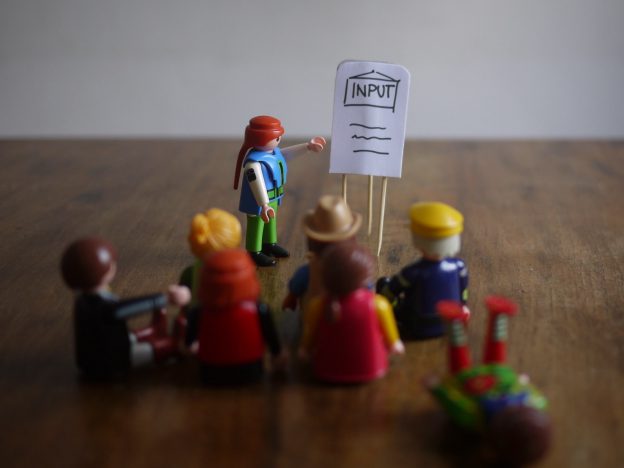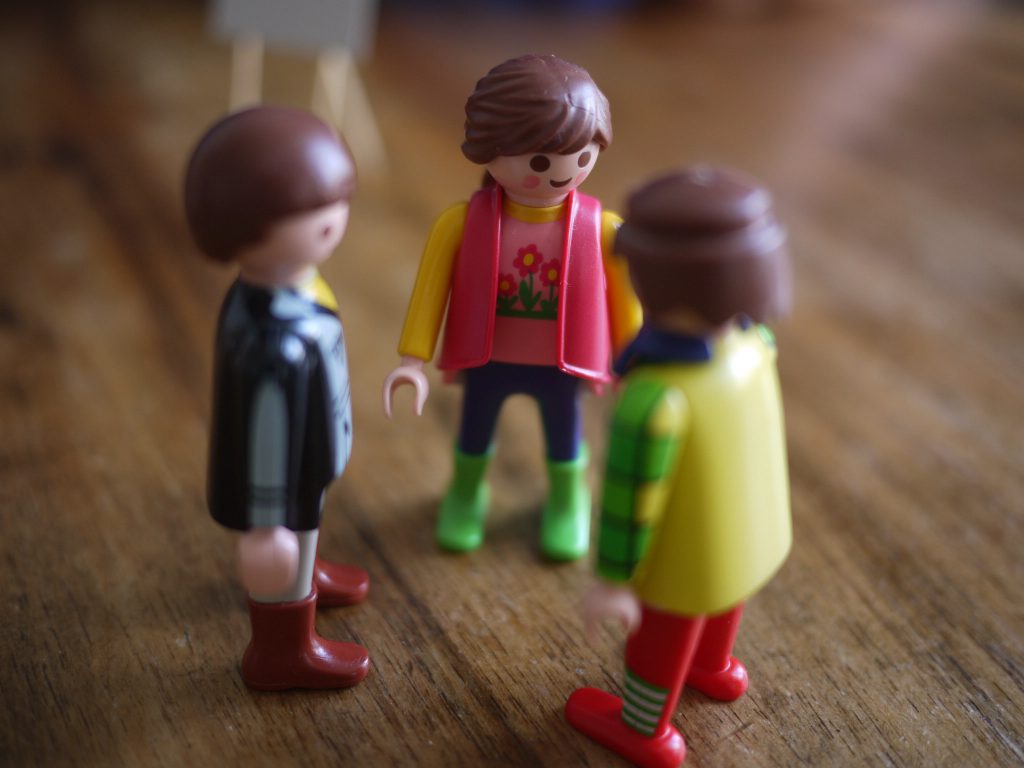
Who hasn’t experienced this? The end of a long seminar day, the time right after the lunch break, or even an evening session and suddenly everything is terribly heavy: like wading through water or talking through candyfloss. Today, our five experts Yasemine, Paul, Beate, Rudi and Maria talk about their experiences with activation measures to make tired groups perk up again.
A bed, a cushion and coffee
The group is sitting in a coffee house again today. The wet, cold weather makes outdoor meetings unthinkable. Maria is looking thoughtfully into her cafe latte and stirring the sugar topping into the milk foam: „When it’s so gloomy outside, I don’t really perk up,“ she says, holding her hand out in front of her as she yawns. „Well, that fits in wonderfully with our topic today,“ says Beate, „after all, none of us are looking very cheerful. So what would we need to get perky and active again?“
After the usual jokes about „a bed and a cushion“, „coffee intravenously“ and „that’s not going to happen today, you can do what you want“, the five then come up with a few suggestions with which they have already had good experiences. Because of their different approaches, they come up with quite a colourful list. They agree that each of them will briefly describe their favourite methods.
Rudi‘s Powernap
Rudi has had good experiences with actually letting the participants „sleep“ for a short time. He leads an exercise he calls „Power nap„, where for 5-7 minutes, participants sit quietly, focus on their breath and actually let the body rest. As a visualisation aid – so that the mind doesn’t start making to-do lists during the resting phase – he tells participants in a calm voice to imagine a ball moving up the front of the body when they inhale and down the back of the body when they exhale. „Most of the breathing exercises can also be used as power napping exercises,“ Rudi says when Maria asks if there are any instructions. „The breathing rhythm is a natural rhythm and deep breathing in and out stimulates relaxation. Most of the time, the participants are awake again afterwards, and I invite them to stand up and take a sip of water to make sure that no one continues to sleep,“ Rudi smiles.
Murmur groups and coffee breaks
Maria immediately offers to continue. Her favourite intervention is murmur groups: more or less guided gossip. This way the group stays with the content but is presented with a different setting. The murmur groups can also leave the room briefly, or just turn to each other while sitting. They do not necessarily have to present results, but should briefly discuss the topic. „I don’t mind if they talk briefly about other things,“ Maria shrugs. „Especially in evening courses, it is often difficult to concentrate and the short break from listening is usually helpful. If they are really tired, I add a short coffee break right after the murmur group.“
Improv theatre and movement
During the exchange, Beate and Yasemine found out that they both like improvisational theatre games with spontaneity and movement. Starting with movement games like „fruit salad“ or „witch – dwarf – giantess“ to reaction games like „whiskey mixer“ or the good old star ball (ball is always thrown in the same direction in a circle). The two of them are almost overflowing with examples. Paul, Maria and Rudi’s heads are soon spinning. Beate promises to send out a collection of games for anyone who wants to take a closer look at the exercises. „But the best thing,“ says Yasemine, „is to attend a workshop or an open training session with an improv theatre group. Most of the games are really hard to explain. It’s better to try them out.“ Beate nods in agreement.
Magic
Now everyone looks eagerly at Paul and his idea to get the attention of an already tired group. Paul takes a tea bag and begins to tell a story about a little fairy who desperately wanted to fly but didn’t have any good material: the fuse on her rocket had broken, the fuel had run out and she had lit the rocket at the wrong end. The fairy had almost given up all hope when the rocket finally took off. Paul looks into enchanted faces and says: „I tell the story and say ‚when you think you can’t go any further, you can always go a little further‘„.
Next time our five experts will talk about visualisation and how it can support processes.
Authors: Gerda Kolb and Irene Zavarsky
Lust auf mehr? Zu allen Beiträgen der Serie kommst du HIER!

Dieses Werk ist lizenziert unter einer Creative Commons Namensnennung-NichtKommerziell-Weitergabe unter gleichen Bedingungen unter gleichen Bedingungen 3.0 Österreich Lizenz.
Volltext der Lizenz


